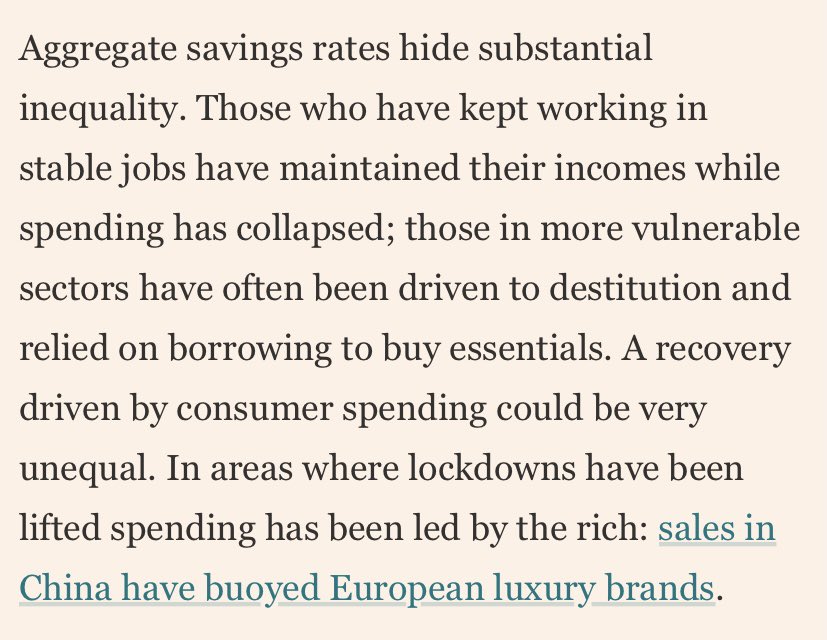Good FT editorial identifying one of the key drivers of inequality during the pandemic: high saving rates among those who’ve maintained their incomes, and rising indebtedness among those who haven’t.
This is only part of the picture though. Thread: https://on.ft.com/3gTdURs
This is only part of the picture though. Thread: https://on.ft.com/3gTdURs
Those who’ve maintained their incomes are more likely to be a) higher income households, and b) homeowners.
Those who’ve lost income are more likely to be low paid and in the private rented sector. Many in this group were already struggling to make ends meet before the pandemic
Those who’ve lost income are more likely to be low paid and in the private rented sector. Many in this group were already struggling to make ends meet before the pandemic
The luckier ones have ended up on furlough (still losing income) but many are now on universal credit. At the same time, precious little has been done to alleviate pressure on rents that were already among the highest in Europe - leaving many facing destitution.
Shelter estimates that 322,000 private renters have fallen into arrears since the pandemic started, and councils predict that as many as half a million private-sector renters could be in danger of being made homeless in the months ahead.
Business are also on the edge: many are relying on debt to survive while suffocating under the absurdity of ‘upward-only’ rent reviews. As I wrote here, the only way to break free is to declare insolvency, which a growing number now see as the only option https://www.opendemocracy.net/en/oureconomy/british-students-have-learned-crucial-lesson-landlords-always-come-first/
It’s clear that the economic costs of the crisis are disproportionately being shouldered by those who are already financially vulnerable.
@oeufling, @shreyagnanda and I wrote about this in April here, yet nothing has fundamentally changed since: https://www.ippr.org/research/publications/who-wins-and-who-pays
@oeufling, @shreyagnanda and I wrote about this in April here, yet nothing has fundamentally changed since: https://www.ippr.org/research/publications/who-wins-and-who-pays
Those least able to weather the crisis are being asked to make sacrifices in order to protect the incomes of those most able to weather it.
And what are the Covid winners doing with their new savings? Buying houses of course, pushing homeownership further away for everyone else
And what are the Covid winners doing with their new savings? Buying houses of course, pushing homeownership further away for everyone else
The FT says the solution is to “shift from consumer spending to business investment”.
That may be right, but we also need to rebalance power between debtors and creditors, landlords and tenants. Without this, any recovery is going to be highly unequal and grossly unfair. END
That may be right, but we also need to rebalance power between debtors and creditors, landlords and tenants. Without this, any recovery is going to be highly unequal and grossly unfair. END

 Read on Twitter
Read on Twitter


